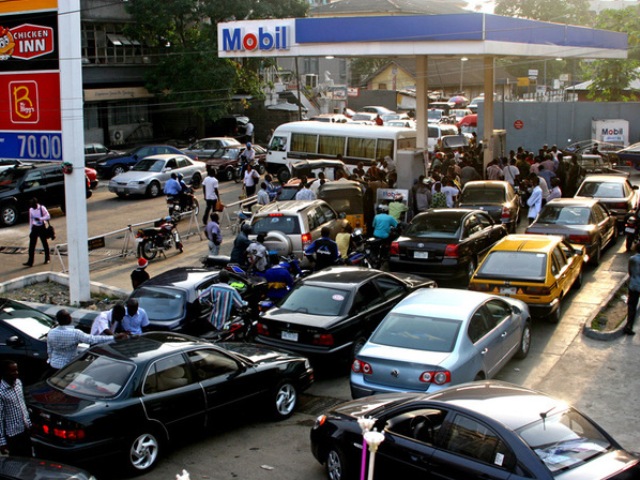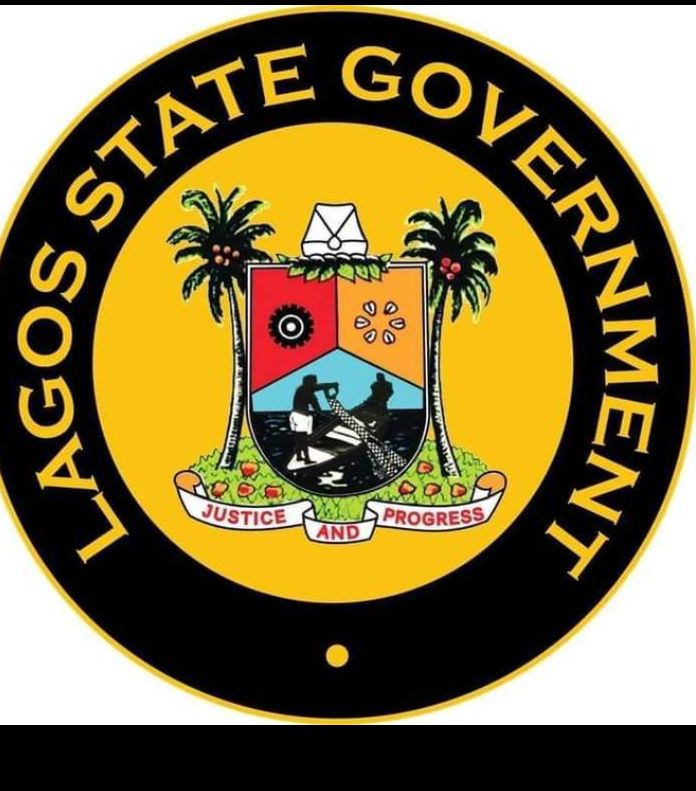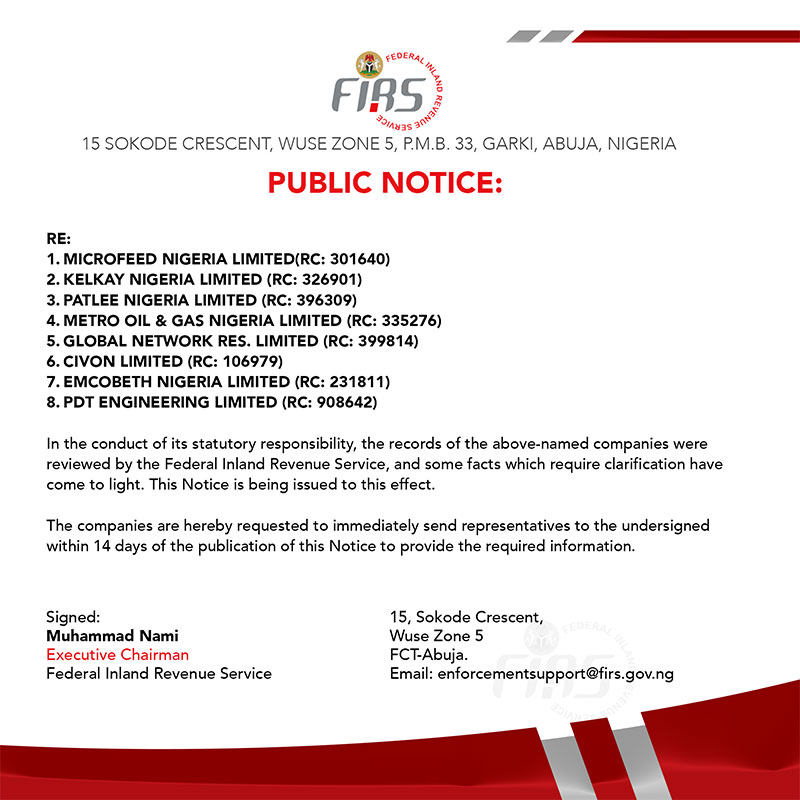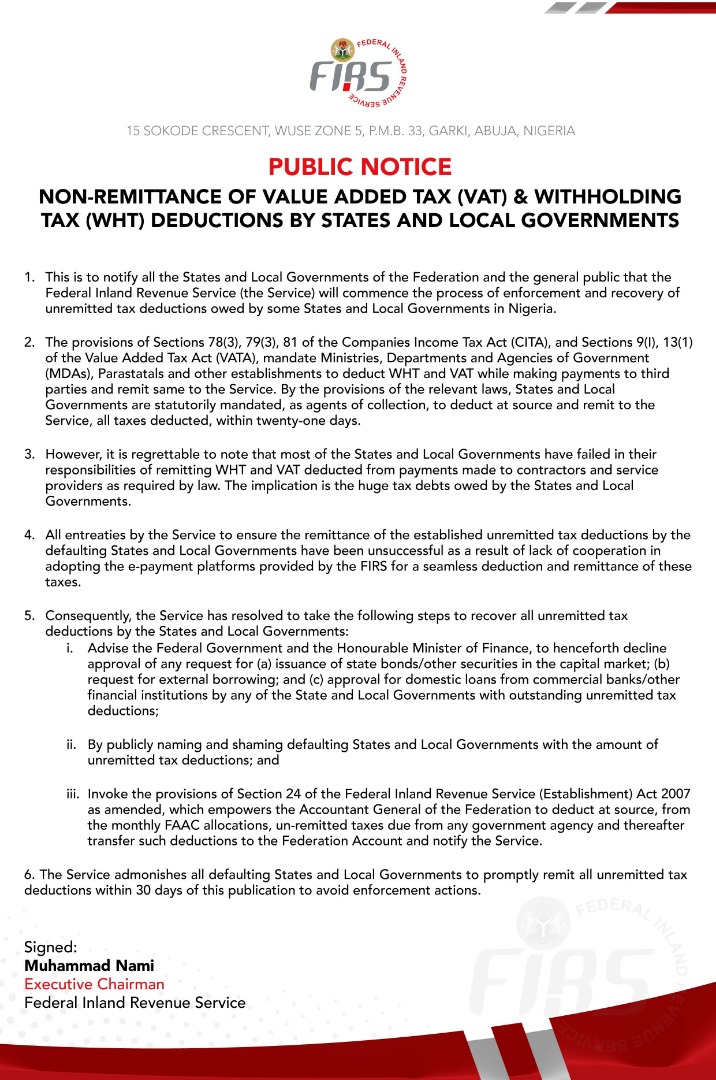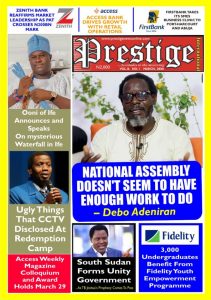
The escalating costs of living occasioned by the removal of fuel subsidy and the subsequent rise in the pump price of petrol, and rising inflation have forced different categories of Nigerians to make adjustments to the way they live.
These are not the best of times in the road transport sector as commuters are now cutting down on interstate travels except for those that are absolutely necessary and essential, while commercial motorists who ply interstate roads have been recording low patronage and as a consequence are scaling down the number of trips they make and taking other measures, including to combine passengers going to different destinations along the same route.
Sunday PUNCH investigations revealed decreasing passenger traffic at popular bus terminals and motor parks in different cities across the country, while vehicles that usually get full within an hour now take over four hours in some cases.
Recall that President Bola Tinubu announced the removal of subsidy on petrol during his inauguration on May 29, 2023 and this was followed by a jump in the pump price of the commodity from N185 per litre to N500.
As Nigerians were battling with the effects of the subsidy removal and awaiting the palliatives promised by the Federal Government to alleviate their suffering, a new price regime kicked off on Tuesday and resulted in petrol selling for between N586 and N630 per litre.
Many transport operators, who spoke to our correspondents, said they had to raise the fares to reflect the new economic realities, as their services were solely dependent on petrol.
On Monday, the Nigerian National Petroleum Company Limited published a new price list which pegged petrol at between N586 and N630/litre.
This new price, according to the Group Chief Executive of the NNPCL, Mr Mele Kyari, is because of some market forces, including the exchange rate of the dollar to the naira, among other factors.
The country’s annual inflation rate rose to 22.41 per cent in May from 22.22 per cent in the previous month, almost matching an 18-year high, according to the National Bureau of Statistics.
The transport sector has been the worst hit by the fuel price increase as fares for interstate travels have increased by up to 250 and 300 per cent.
Lagos, Ogun, Oyo
Before the fuel hike, travellers going from the Iyana-Ipaja park to Ibadan, Oyo State, were asked to pay between N1000 and N1500 for the trip, Sunday PUNCH has learnt.
An Oyo State-based content creator, Ibrahim Sadiq, said in an interview with one of our correspondents he was charged N2,500 from the old toll gate area in Lagos to Ibadan on Wednesday.
“When I got to the small park right after the toll gate along the Lagos-Ibadan Expressway, the bus drivers asked that we pay N2,500. A Sienna even charged N3,000. When I travelled last month I paid N2,000 from Berger. The increment is just too much,” he said.
Another commuter, who works with an educational consulting firm in Abeokuta, Ogun State but has her family in Lagos, Mrs Aishat Ahmed, said she used to pay between N1,500 and N1,800 from Berger in April.
“Since May, I spend as much as N3,500 sometimes and Abeokuta is not even that far. I remember when I used to enter a bus from Berger to Abeokuta for about N800 around 2018 or 2019. I have decided to begin to divest from Lagos and move fully to Abeokuta. This time around, the buses take so long to fill up because there are no passengers,” she added.
When Sunday PUNCH visited the God is Good Motors’ park at Yaba, Lagos, at 10.41 am on Thursday, the place looked almost empty.
On enquiry, a worker who spoke on condition of anonymity said the day had been slow, adding that passengers now preferred to go with unregistered operators because of the increase in fares.
He added that the fare from Lagos to Bayelsa a few months ago was around N7,900 and N8,000, but had increased to over N23,000 now.
For Enugu, from Lagos, the fare was around N9,000 but is now N21,000. The fare for Edo (Auchi, Akpakpava, Uselu and Ekpoma) has also increased by almost 100 per cent, hitting N19,000.
The operator stated, “The major problem now is that the company is trying to review the fares because even the amounts do not reflect the current realities. This recent increase in fuel to about N630/litre has not even been considered.
“A lot of our customers are no longer coming to board our vehicles. The business has been slow. Now, for people going to Ughelli in Delta State and other places along that route, we put them on the same bus going to Bayelsa.
“Before, by 7am, the first bus would have moved. Now, even by 8.30am, we are still doing some kind of amendments to make sure that the bus does not leave any vacant seats. It (the fuel price hike) has really affected business.
“As I speak, I am scared that the company may begin to consider downsizing in order to stay afloat. With the current situation, I hope we don’t go under.”
A ticketing agent, who spoke to one of our correspondents at the terminal, said the rate of passengers booking trips online had also dropped.
She said, “Before this current palaver, we used to have about five or more first buses going to Jos, Plateau State; Port Harcourt, Rivers State; Yenagoa, Bayelsa State; Enugu, Enugu State; and even to the far North like Bauchi. But, now, we manage to fill the second buses going to these areas.
“As of yesterday (Wednesday), we got a report from our Jibowu office that as of 9.30 am, the second bus going to Port Harcourt had yet to move because it was half empty. We are really losing a lot of time, manpower and resources to the fuel palaver.”
An Owerri-Imo State-bound passenger, Mrs Ogechi Nnaemeka, said she thought she had missed the bus when she arrived at 9am, but was shocked to find out that the vehicle had not moved because it was waiting for a few more passengers.
“In 2018, if you didn’t arrive at 8am or even 15 minutes earlier for the second bus, you would miss it. I am in shock how this bus has still not moved till now,” she said.
Nnameka also stated that she used to board a bus from Lagos to Owerri for between N4,500 and N6,500 between 2016 and 2018, adding that the spike in the pump price of fuel had made things difficult for her.
“For the first time in my life, last week I used the state-owned Imo Line. It was so uncomfortable but it was a bit affordable, it was N3,000 lower than what I would have paid if I had patronised any of the private transport companies,” she said.
Another passenger, Madam Martha Nzube, said she travelled from Port Harcourt to Lagos to see her daughter four days ago using the Rivers Transport Company, which charged her around N9,000, but was shocked that even the Akwa Ibom Transport Company, touted to be the cheapest, refused to accept N11,000 back to Port Harcourt.
“I am currently calling my daughter to send me some more money so that I can go back. Some people are even saying I should pay N25,000. The cheapest I have heard so far is N16,000,” she stated.
Another stranded passenger at the Yaba bus park, Mr Essien Etuk-Udoh, said he only came for a show at the Lagos State University last week.
He added that he was shocked that even the AKTC fares had also increased.
“I don’t even know what to do and Akwa Ibom is far. If I don’t set out by 12pm, I may get to my final destination by midnight and I don’t want to board any of these undocumented buses that do not have any proper registration. They have been found to be unsafe,” he said.
A loader at the Ekeson Transport Company, who refused to give his name for fear of retribution, said there had been low patronage since May when the fuel price began to rise.
He said, “You know people have to travel. And since airfares have increased to more than N100,000, people have to use buses. Imagine how they will feel when the buses too increase their fares.
“We are an affordable transport company but we also run on fuel. So, our prices have also increased by up to 100 per cent.
“The problem is that passengers now prefer Siennas because they are unregistered, cheaper and get filled easily, but I cannot assure you of their safety.”
At the Lekki terminal of the GUO Transport Limited, a field operative with the company, who gave his name simply as Shadrach, said the firm now had only one bus going to the North because of the fuel crisis.
Shadrach stated, “You know we are an elite service company. Before the fuel price increment, most people choose our services because of comfort. Now, they are going for kabu kabu buses and Siennas, which are relatively cheaper, because they have no choice.
“We have the seven-passenger Toyota Sienna vehicles, which have become our best seller during this period because it takes less time to fill them with passengers. We also have the 14-passenger Sprinter buses, 15-passenger Toyota Hiace buses and our luxury buses, which can convey 33 to 59 passengers.
“As of April, the fare from Lagos to Aba for an adult was around N10,000. Children paid around N8,500. Now, it is more than N19,000 for adults and N16,000 for children. It changes by the day. I am speaking from my knowledge of working here for more than five years.
“Lagos to Abuja used to be N11,000 for adults. Now, it should be about N21,000 or more. Lagos to Enugu used to be N12,825. Now, it is around N23,000. Lagos to Ogoja, which used to be around N11,000, has risen to double that amount.
“The change has affected business badly.”
Another worker, who did not want to be named because he was not authorised to speak on behalf of the company, said he feared that the firm might cut the number of workers if the situation continues.
“Over the years, the company has faced a lot of woes in the economy, from recession to incessant inflation to COVID-19 and now this. Doing business in Nigeria is so difficult,” the source said.
When one of our correspondents visited G. Agofure Motors located in the Ojota area of Lagos State, he observed a price list displayed in the company’s reception displaying fares to Port Harcourt at N25,000; Bayelsa, N20,000; Warri, N18,000; and N18,000 for Sapele, Benin and Abraka.
However, a staff member, who identified himself simply as Livinus, revealed that the fare to Port Harcourt before the increase in petrol price ranged from N18,000 to N20,000, while to Warri was N15,000.
An attendant at Freeman Motors, Ojota, Lagos, Romeo Elvis, disclosed that the fare from Lagos to Warri was N15,000 and to Port Harcourt, N23,000, whereas, in the past, the fare to Warri was N12,000, while Port Harcourt was N15,000.
Elvis said, “In the past, individuals used to travel for parties on Thursdays and Fridays, but that is no longer the case. Now, they have stopped going to parties on those days due to the prevailing circumstances in the country. Many are now exercising caution when choosing their travel destinations and aiming to minimise their expenses.
“In the current situation, individuals refrain from travelling unless it is absolutely necessary. Several individuals who previously journeyed from the eastern region to Lagos to purchase goods have now ceased doing so. Instead, a significant number of them opt to send money and have the items delivered through waybills.”
A cashier at Peace Mass Transit, Ojota, Lagos, stated that transport fares to Enugu increased from N12,000 to N17,000 after the hike in petrol price. According to her, the increase became necessary in view of current realities and in order for the company to meet up with running costs.
Lamenting the situation, a bus driver at PMT park, Ojota, Lagos, Kalu Kalu, stated that the increase in fuel pump price had continued to affect patronage, predicting that several companies would fold up if nothing was done to address the current situation in good time.
He said, “How can people be suffering and you are telling them to endure? The reality is that there is nothing anyone can do; if fuel price increases, transportation costs will also increase.
“The new government better do something about this issue of fuel because a lot has been affected. Even fares within the town have increased, why won’t the interstate increase? If care is not taken, we will begin to see a lot of companies folding up.”
Abuja
At the usually busy Nyanya park at the boundary between the nation’s capital city of Abuja and Nasarawa State, a number of drivers sat idly in their vehicles on Friday, waiting for passengers to convey to various destinations.
One of them, who gave his name simply as Aliyu, explained that while about 20 vehicles used to leave the park daily with passengers, now on average, only about four vehicles heading for Lafia leave the park.
Aliyu stated, “What we are experiencing now is not easy. There’s an increase in the price of fuel and passengers don’t come as much as before. Before, we could load between 15 and 20 vehicles in a day, but now, we load only between three and four vehicles, and it takes about three to four hours to fill up one vehicle.
“We now charge N3,500 to Lafia, which barely results in any profit because we will buy fuel and now, it is difficult to get passengers on the way back. So, the transport business has changed, and we plead for the government’s intervention. What we make now is barely enough to feed our families.”
Another driver, Musa Mohammed, who plies the Abuja-Jos route, stated that while it used to take him a day to load passengers, but now takes him four days to find a Sienna vehicle full of passengers to drive to Jos.
He added that the increase in the pump price of fuel had added to his woes as he now buys a full tank for N50,000 from around N16,000 when petrol sold for N195/litre.
A passenger, who declined to be named, lamented having to wait for hours before the vehicle was filled up and ready to leave.
“I’m going to Benue. Before now, the car would probably be full 10 minutes after I arrived. Now, I have been here almost an hour and there’s no telling when we will commence the journey, because the drivers won’t take off until the vehicles are filled up,” she said.
Another passenger, who gave his name simply as Francis and was heading for Keffi, said he had been at the park since about 11am and as of the time of filing this report around 12.30pm, the car had yet to be filled up.
At the bustling Utako/Jabi Park in the Federal Capital Territory on Friday, the ticketing halls of several prominent transport companies were desolate and devoid of activities.
A driver with Andalinks, Sir Henry, stated that he had been stationed at the company’s base in the FCT for the past five days without a single passenger despite offering cheaper fares compared to other major operators.
Henry explained that prior to the fuel subsidy removal, it took N17,000 to fill his tank, but at present, it costs about N80,000 and passengers were not willing to pay the N25,000 fare to Lagos.
On his part, the Assistant Manager, RiversLinks Transportation Company, who gave his name simply as Okey, said there had been a sharp decline in passenger numbers due to the financial constraints faced by travellers as a result of the current increase in fuel price.
Presently, he said the fare for a trip from the base to Port Harcourt was N26,500, whereas before the removal of fuel subsidy, it was N18,500.
“That fare (N26,500) is for us, but some companies like G.U.O are collecting about N37,000. If you don’t have anything important to do, just remain at home. Before, we used to fill this vehicle with N40,000 petrol, but now it is above N70,000 to fuel it to Port Harcourt,” Okey stated.
Early-morning travellers from the FCT to areas in the South-West have reduced significantly even as they complained of high fares.
One of our correspondents, who paid a visit to the Giri junction early on Friday, observed that drivers had no choice but to drive half-filled vehicles to their destinations after waiting several hours for passengers.
A driver, identified simply as Michael, said he could only get two passengers after waiting for over three hours.
“People are no longer travelling. After waiting for three hours, I could only get two passengers but I had no choice but to embark on the journey at half capacity,” he said.
At the popular Zuba park, numerous vehicles were seen with empty seats with fewer passengers coming in.
It was gathered that a trip from Abuja to Ibadan now costs around N15,000 from between N6,000 and N9,000 before the subsidy removal. Also, a trip to Sokoto is now N15,000 from N8,000, while the fare from Abuja to Kaduna rose to N4,000 from N2,000. Kano passengers pay N6,000, while N3,000 is charged for a short trip to Minna.
A driver, Yusuf Usman, plying the Abuja-Minna route explained that he now makes a profit of N2,000 on a trip to Minna, Niger State capital.
Another driver, Muhammad Sani, noted that some drivers had been at the park for nine to 11 days waiting for passengers.
Anambra
Activities at major motor parks in Anambra State have slowed down since the hike in the price of petrol.
One of our correspondents, who visited various motor parks in the commercial cities of Onitsha, Nnewi, Obosi, Ekwulobia, Nkpor and Awka, on Friday, observed that vehicles took time to get filled up as a result of few passengers coming to the parks.
The managers of the parks and drivers attributed the development to the rise in transportation fares, which have soared marginally by over 70 per cent for both inter and intra-city commuting.
Vehicles going to Awka from Onitsha now charge N1,200 as against N500, while the fare from Onitsha to Nnewi is now N800 as against N400 before now.
One of the drivers at the motor park owned by the Transport Company of Anambra State in Onitsha, simply identified as Chisom, said, “There is low patronage by passengers at the parks these days and I think it’s because of the transport fare hike, which is not our fault.
“Before the fuel price increase, we were loading an 18-passenger bus in less than an hour. But now, it takes more than two hours before the buses manage to fill up with passengers.
“This is because of the increase in the fares caused by the fuel price hike. Before the fuel price hike, from Onitsha to Awka used to be N500, but now it is about N1,000. For this reason, passengers now prefer to board vehicles by the roadside, otherwise known as ‘pick and drop’, because those ones are cheaper.
“Another reason for the delay in the filling of vehicles at the park is that many offices have asked their workers to come to work on selected days. And many people have resorted to trekking long distances.
“Before now, the park used to be filled with passengers travelling to various destinations, especially for the weekend. The park used to bubble every Friday for weekend travellers, but today (Friday), everywhere is dull as the people have refused to travel because of the price increase.”
A passenger at the Goodness and Mercy Motor Park in Awka, who identified herself simply as Chinwe, said, “I am travelling to Enugu for the wedding of my sister. If not for the importance of my presence, I would not have travelled because the transport fare has been increased abnormally. It used to be between N1,500 and N1,800, but today, they are charging as much as N3,000.
“For over two hours now, I have been in this bus and the vehicle has not filled up. To worsen the situation, when passengers come and are told the fare, they turn back and you can’t force anyone to board a vehicle against their wish.
“I think people have withdrawn from travelling for now because of the high fares. It is not funny what we are now passing through. If not that the person I am attending her wedding is my sister, I would have just used the money for transport fare to buy her a gift and send it to her through waybill.”
Kano
Transporters in Kano have hiked their fares by about 100 per cent on many routes. Before the recent fuel price increment, transporters operating with Hiace at Unguwa Uku charged N9,500 from Kano to Lagos, but currently charge N18,000.
The commercial bus operators are lamenting low patronage, as only fewer people now embark on travels outside Kano.
It was discovered that some passengers on arrival at the motor parks change their minds and opt to waybill parcels to their loved ones outside Kano in order to save costs.
Some, who are desperate to travel, have to wait for between four and five hours for the bus to fill to capacity before takeoff.
A bus driver at Unguwa Uku bus stop, Salihu Mustapha, told Sunday PUNCH that the motor park used to bubble with activities, but was now a shadow of its old self due to poor patronage.
At the Luxury park in Hotoro, only a few passengers were boarding luxury buses to Lagos and other states in the South.
The luxury bus drivers too have hiked their fares to Lagos from N15,000 previously to between N25,000 and N26,000.
Those fitted with air-conditioners charge a lot higher than those without.
Airfares soar
Meanwhile, airfares have soared to unprecedented levels, impacting the affordability of domestic travel. In the past, passengers could secure next-day tickets for as low as N70,000 to N75,000.
Now, a one-way economy class flight from Lagos to Abuja with AirPeace now costs N95,000, while the business class fare is N150,100.
Similarly, Arik Air charges N93,429 for an economy ticket and N123,429 for a business class ticket on the Lagos-Abuja route.
Green Africa puts the fare for a one-way ticket at N88,500, while Dana Air charges N85,000 for an economy ticket and N130,000 for a business class ticket from Abuja to Lagos.
Source: Sunday PUNCH


